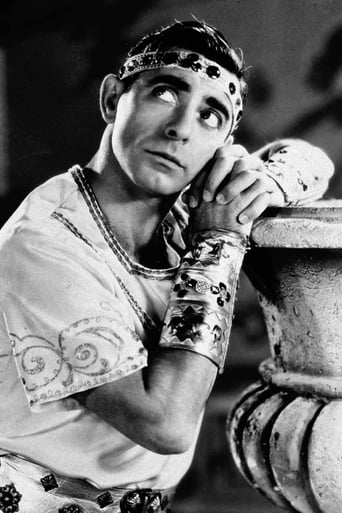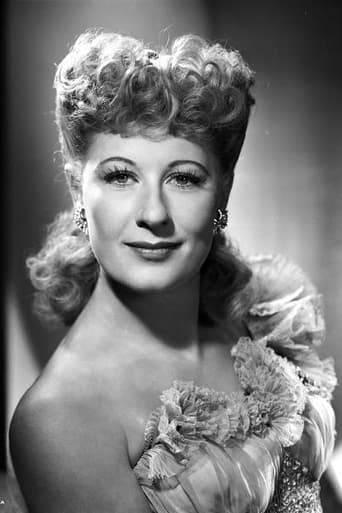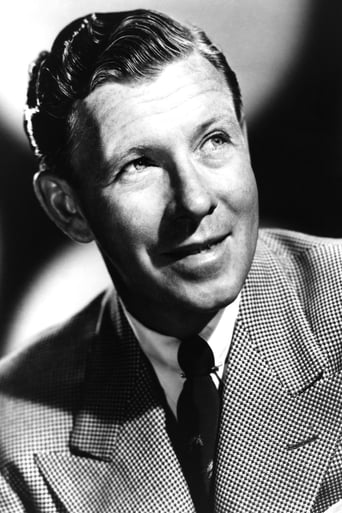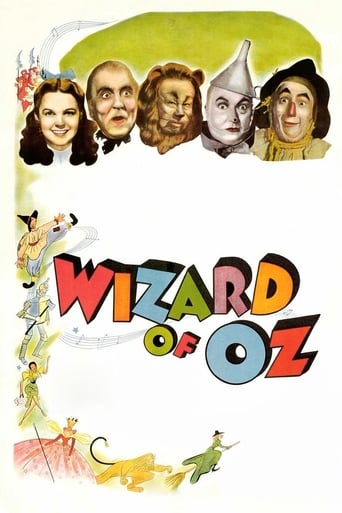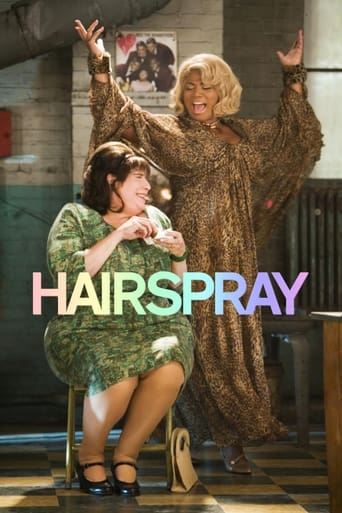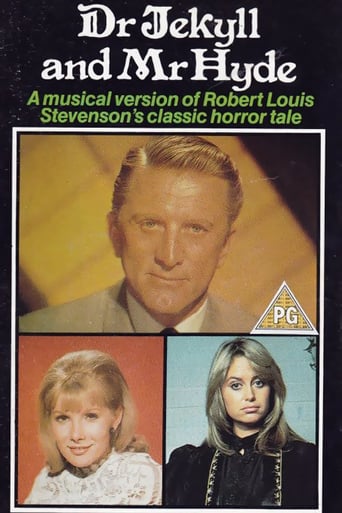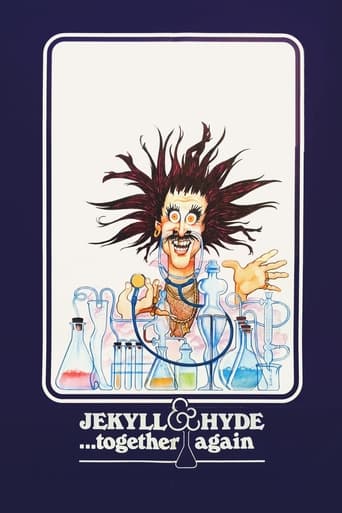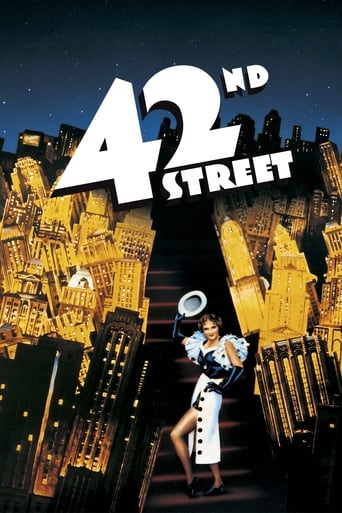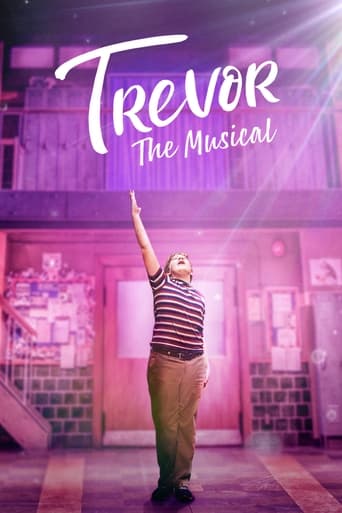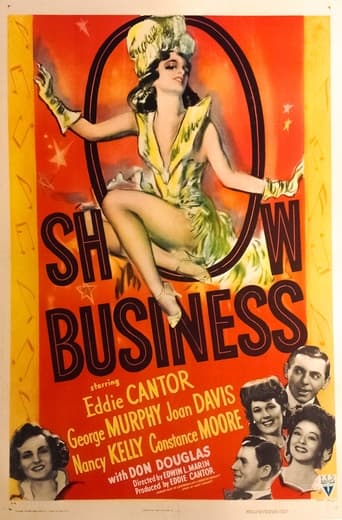
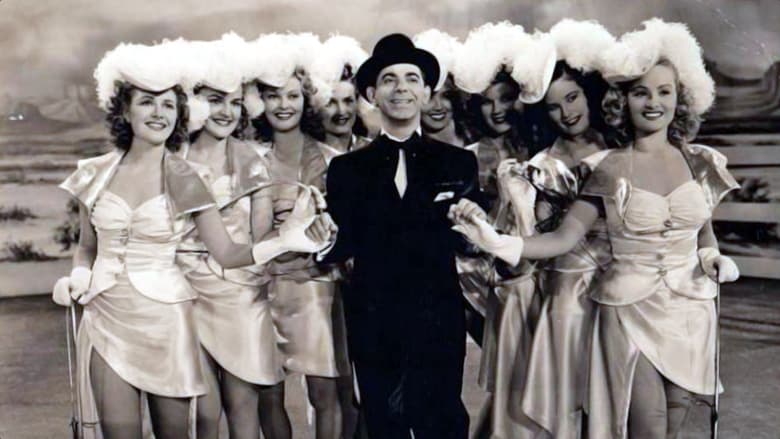
Show Business (1944)
Musical about vaudeville performers, from 1944.
Watch Trailer
Cast
Similar titles
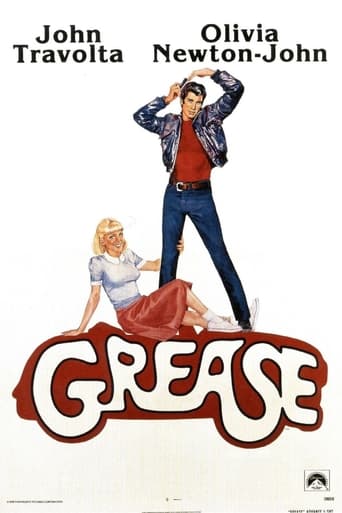
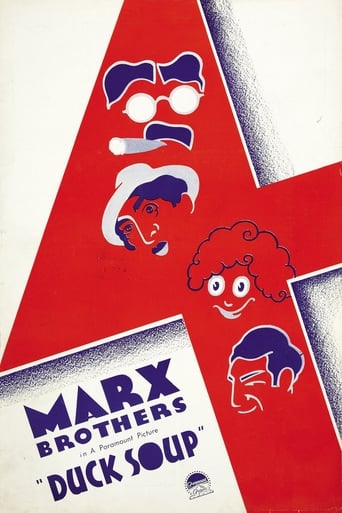
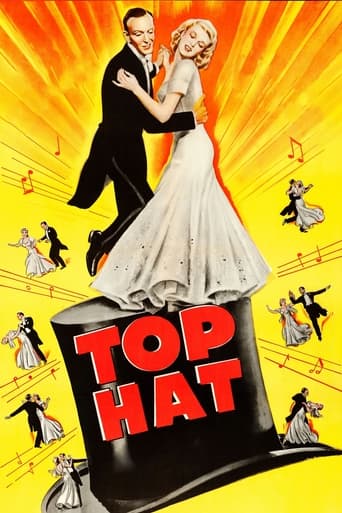
Reviews
Very very predictable, including the post credit scene !!!
I'll tell you why so serious
Story: It's very simple but honestly that is fine.
The movie turns out to be a little better than the average. Starting from a romantic formula often seen in the cinema, it ends in the most predictable (and somewhat bland) way.
SHOW BUSINESS (RKO Radio, 1944), directed by Edwin L. Marin, stars the legendary Eddie Cantor, who also produced, in a nostalgic down melody lane story set in the days of burlesque to Broadway (1914-1928). Though this could have been "The Eddie Cantor Story" considering how the plot somewhat borrows from Cantor's own stage origins, leading up to his signature number, "Makin' Whoopee" he introduced in Florenz Ziegfeld musical, WHOOPEE, the narrative belongs mostly to co-stars George Murphy and Constance Moore, with Cantor and Joan Davis in secondary comic leads, all assuming their actual first names in character roles.Opening title: "In the glorified of belles - bloomers - and beer in buckets, troupes, ambitious groups of lovable hams known as Show Folks, all dreaming of big time. In the burlesque theater of those days were born many of today's great stars." In a story starting around 1914, George Doane (George Murphy) is introduced as a popular singer and dancer in a burlesque theater with a ladies man reputation. He is loved by Nancy Gaye (Nancy Kelly), a singer in the show, determined to hold onto him at all cost. After Eddie martin (Eddie Cantor) wins a $10 prize in an amateur contest, a friendship forms between he and George, who makes Eddie, the man with the jokes, as his new partner. To celebrate their union, they come to Kelly's Café where, through vaudeville agent, Charlie Lucas (Don Douglas), get to meet a struggling sister act team of Constance Ford (Constance Moore) and Joan Mason (Joan Davis). Due to George's interest in Constance, he adds the girls to his vaudeville to burlesque partnership. As Constance eventually gives in to George's proposal of marriage, Joan continues proposing unsuccessfully to Eddie, which doesn't discourage Joan as she frequently looks into the camera, saying, "I love that boy!" All goes well for George and Constance until Nancy's scheme to get George back interferes with their marriage.With a grand selection of tunes from the early part of the twentieth century, the motion picture soundtrack includes: "They're Wearing Them Higher in Hawaiier" (sung by George Murphy); "Swanee River" (by Stephen Foster/solo dance number); "The Curse of the Aching Heart"(sung by Eddie Cantor); "It Had to Be You" (sung/danced by George Murphy and Constance Moore); "Strolling Through the Park One Day" (dance rehearsal); "I Want a Girl, Just Like the Girl That Married Dear Old Dad" (sung by Cantor, Constance Moore, George Murphy and Joan Davis); "Comin' 'Round the Mountain" (sung by Joan Davis); Comic Opera (performed by Cantor,Davis, Murphy and Moore); "Alabamy Bound" (Eddie Cantor); "Dinah" (Cantor, Murphy, Davis and Moore); "You May Not Remember" (sung by Nancy Kelly); "I'm in Love With a Beautiful Nurse," (Eddie Cantor/ George Murphy); "You May Not Remember" (reprise by Nancy Kelly); "Why Am I Blue?" (sung by Constance Moore); "You're All I Need" (sung by Murphy); "It Had to Be You," (separately sung by Moore and Murphy); "Makin' Whoopee" (sung by Eddie Cantor); "It Had to Be You" (sung by George Murphy).SHOW BUSINESS may have all the familiarity of those period musicals pieces commonly found in 20th Century-Fox musicals of the forties, and that nostalgic feel from MGM's own FOR ME AND MY GAL (1942) which also featured George Murphy, but the film itself, though quite good, is quite underrated. Lacking the commonly use of Technicolor found in most 1940s musicals, it benefits highly with costumes and hair styles being close to accurate for its time frame. Quite enjoyable during its song and dance interludes, especially during Cantor and Davis exchanges, it makes one wonder why these two haven't been teamed before this. Davis is naturally funny, even when borrowing a comedy line often associated to W.C. Fields. Cantor and Davis would work together again in IF YOU KNEW SUSIE (RKO, 1948), becoming Cantor's final motion picture lead. Though amusing and still great together, the results weren't the same even with their comic opera sequence (with Murphy and Moore) clipped into it.Formerly broadcast on American Movie Classics prior to 2001, SHOW BUSINESS, which had its distribution on video cassette in the 1990s through Turner Home Entertainment, can be seen occasionally on cable TV's Turner Classic Movies. A real treat for Cantor or Davis fans or both, Murphy and Moore should not be overlooked in their serious moments together, especially their split screen vocalization of the film's theme song, "It Had to Be You." Anyway, there's no business like SHOW BUSINESS. Sit back and enjoy this one. (***)
SHOW BUSINESS (what an imaginative title) is a look back at the heyday of vaudeville, with nods to its antecedent, burlesque. When this was made in 1944, vaudeville wasn't that long gone, so I suspect a lot of the original audience must have found the movie a strong nostalgia pull. Eddie Cantor and George Murphy play two vaudevillians hooked up with a pair of female vaudevillians played by Joan Davis and Constance Moore. They perform classic number after classic number in a virtually plot-free movie. Cantor of course is marvelous, if a little long in the tooth for the role. Murphy and Davis, both pretty young at the time, hold their own. Only Moore seems out of place, although she does her best. Musical numbers\include "It Had to Be You" and the Al Jolson classic, "Dinah." A blackface number comes as a shock to these 21st century eyes, but what are you gonna do? Cut it out? I am sure it was in years past, but the number is integral to the proceedings and entertaining without being overtly offensive. It reminds the viewer of vaudeville's deepest roots, the minstrel shows of centuries past.
Any film that gets Eddie Cantor to revive Making Whoopee and I Don't Want To Get Well is one worth seeing even with the skimpy plot.Show Business is the story of a vaudeville act, how they got together and their trials and tribulations from the turn of the last century until the Twenties. It was right after talking pictures came in that vaudeville began slowly to decline.This was an era that Eddie Cantor knew well, it was the kind of Show Business he cut his performing teeth with before hitting the big time on Broadway in the Ziegfeld Follies. The quartet is Cantor, George Murphy, Constance Moore, and Joan Davis.Davis chases Cantor through out the film which is ironic because she got him in the real life. It was on this film that they had a discreet affair that was well known in performing circles, but the public never found out about lest Cantor's family image be ruined. Davis's comedy here and elsewhere was the physical sort of stuff that Lucille Ball so popularized on television. Davis too had her biggest success in her television series I Married Joan. She died way too young.Murphy and Moore have an on, off, and on again romance with Nancy Kelly doing her best to break them up. Murphy's big number is the old standard It Had To Be You which at the time was enjoying a revival with a best selling duet record by Dick Haymes and Helen Forrest.No original music for Show Business, just some good old standards. Unfortunately there is a blackface number that all four of the leads are involved in. Cantor did blackface though it never was THE centerpiece of his stage persona like it was for rival Al Jolson.Show Business is a pleasant afternoon's diversion about the days of vaudeville. And what days they were.
And wit like you would never see nowadays.The story of a four person act, two men Eddie Martin (Eddie Cantor) and George Doane (George Murphy) and two women Joan Mason (Joan Davis) and Constance Ford (Constance Moore) (lot of thought evidently went into those names), their lives, their loves, their highs, their lows and some very entertaining performances. Particularly from Joan Davis who gets all the fabulous one-liners.There a some classic songs in there too, "Making Whoopee" and "It Had To Be You." All in all, a very entertaining way to spend a slow Saturday afternoon.
